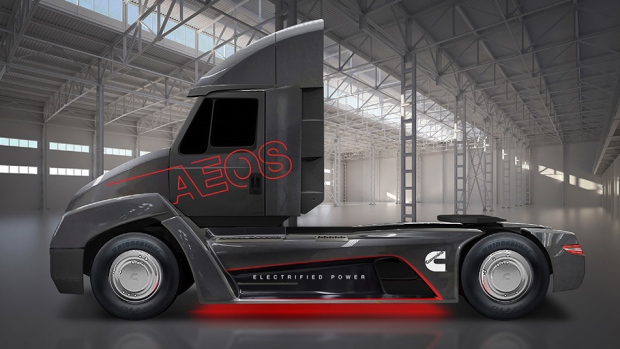Nov 10, 2017
Elon Musk faces skepticism ahead of Tesla’s semi-truck unveiling

Elon Musk may find the trucking industry more difficult to disrupt than the world of passenger cars.
The Tesla (TSLA.O) CEO has twice delayed plans to unveil its all-electric semi. Originally expected in September, the rollout is currently set for Nov. 16. That later launch date is on top of the “production hell” facing the Model 3 sedan and the growing stable of rival carmakers rolling out their own electric semis, but Justin Bailie believes Tesla’s electric semi could also face another barrier: the industry itself.
Trucking and logistics “is a bit of a laggard industry, not highly profitable and so it is risk averse,” the president and co-founder of Rose Rocket, a Toronto-based startup offering cloud-based software and services to the trucking industry, told BNN in a phone interview this week.
“It is a very different dynamic producing trucks than producing cars,” agreed John G. Smith, editor of Today’s Trucking magazine, in a telephone interview. “It is no small matter to displace established manufacturers.”
The challenge Tesla faces if it hopes to displace established semi builders is compounded by the fact that many of them have already moved into the electric vehicle space. Daimler unveiled an all-electric truck named the E-Fuso Vision One last month, with a 350-kilometre range and a cargo capacity only slightly below its diesel equivalent. Diesel engine maker Cummins released its Urban Hauler Tractor even earlier than that, in early September, offering a 160-kilometre range.

Volkswagen has also recently tipped its hand on a US$1.7-billion plan to start producing electric trucks and buses by the end of this decade. While Tesla may still conceivably be able to beat those new products to market by putting more resources into its own production, the company has set a clear priority on the Model 3, even if it means curtailing production of other vehicles.
Meanwhile, at least one competitor already has all-electric trucks rolling off the assembly line. California-based Chanje Energy won a contract to provide 125 electric delivery trucks to rental giant Ryder. Some of those trucks are already available to rent in Chicago and New York City, with the full fleet due for delivery before the end of this year.
One area where a Tesla semi could potentially overcome the competition is on range. None of the electric semis unveiled thus far can travel more than 400-kilometres on a single charge, making them impractical for long-haul transportation. Various unconfirmed reports suggest Tesla’s first semi will not beat that by very much – the largest estimate is for a 500-kilometre range – but Rose Rocket’s Bailie believes it is possible.
“Tesla exceeds expectations on launches, so [the semi] is going to do a lot of things that people say it can’t,” Bailie said. “The range will probably go a lot further than people think it will and it will probably get into production faster than people expect.”
“It could be their ability to create a bigger or better battery,” he said.
Even if Tesla does manage to unveil an electric semi next week with a supersized range, broader logistical challenges unique to the long-haul trucking world would still make major disruption unlikely.
“Electric trucks in long-haul trucking applications currently makes no sense,” James Menzies, editor of trucknews.com, told BNN via email. “There’s no charging infrastructure available on long-haul routes. Batteries wear out and they also take too long to charge.”
“I think diesel will remain the predominant power choice for long-haul trucking for a long time to come,” Menzies said.
Tesla could still win some support if it manages to provide some cost savings, Rose Rocket’s Bailie argues, citing one recent example of a trucking company spending over a million dollars to upgrade lightbulbs in order to save 1.5 per cent on its monthly energy bill.
“You don’t need to hit grand slams to have a large impact in this industry,” Bailie said. “If you can show sustainable incremental positive impact to the balance sheet, then they will sell out.”


